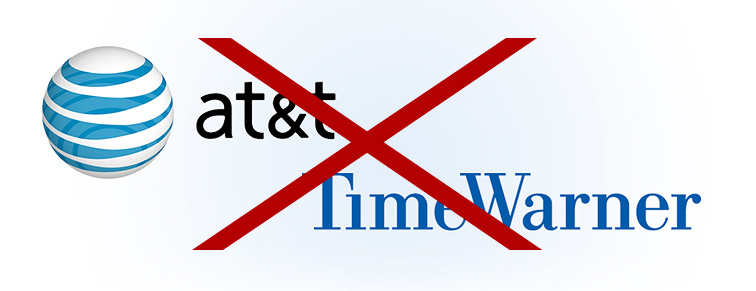Politics & Public Policy
Make Competition Great Again!
Vigorous antitrust enforcement will create a flourishing marketplace for writers.
(From the December 2017 issue of WriteNow)
By Garrett Andrew Schneider, WGAW Senior Research & Policy Analyst

The U.S. Department of Justice antitrust lawsuit to block the proposed marriage of AT&T and Time Warner is a much-needed challenge to the onslaught of megamergers in telecommunications and entertainment. A generation ago, 20 to 30 major media companies competed for writers, and that vigorous competition benefited everyone. Writers saw it in their paychecks and in independent producers willing to take creative risks. Consumers saw it in an abundance of high-quality films and TV programming. Producers saw it in a profitable and growing industry.
As federal limits on corporate consolidation loosened, however, the writing market shrank to six traditional media conglomerates and two major new media companies. Today, unless there is a paradigm shift in federal competition policy, the Big Six may shrink to the Big Four (Fox is already shopping its entertainment assets around to Disney and NBCU).
Media and telecom consolidation erodes the power of writers at the bargaining table. Writers are forced to negotiate with fewer and larger companies who are better able to maintain a united front and enjoy the financial wherewithal to resist reasonable demands. Diminished bargaining power makes it difficult for writers to adapt contract provisions to a changing industry and win their fair share of the profits generated by their talents and hard work. During the 2017 WGA contract negotiations -- at a time when media conglomerates raked in $51 billion in profits while writer-producer compensation dropped 23% -- a 96.3% strike authorization vote was necessary to convince the companies to agree to even a modest episodic fee span provision and increases in health-care contributions.
Writers now have a once-in-a-generation opportunity to restore competition to the marketplace for writing by advocating for vigorous antitrust enforcement. Antitrust is the realm of law tasked with ensuring free and fair market competition. But antitrust authorities appointed by both political parties have fallen down on the job, waiving through mergers and overlooking anticompetitive practices that reduce the number of buyers for writers’ services, increase prices for consumers and stifle competition. As The Economist put it: “America needs a giant dose of competition.”
Writers are not alone in the fight for antitrust enforcement. A broad bipartisan coalition representing constituencies from around the country and across industries has converged around the belief that a generation of lax antitrust enforcement has led to dangerous levels of corporate consolidation.
This antitrust coalition includes a diverse range of interests, from Iowa farmers hit by price gouging in consolidated seed markets to Silicon Valley successes like Yelp who have been squeezed by the behemoth Google’s abuse of its dominance in search. Conservative Republicans and liberal Democrats alike agree that antitrust enforcement furthers economic freedom and opportunity. Republican Senator Mike Lee of Utah, for example, declared that “as a conservative Republican who favors free markets…I believe that preserving competitive markets through antitrust principles can help forestall the imposition of burdensome government regulations.”
Meanwhile, Democrats are running in 2018 on "A Better Deal on Competition and Costs" platform which, if implemented, would prevent harmful consolidation and require regulators to review mergers after completion to ensure they continue to promote competition. It would also create a 21st century ‘Trust Buster’ to halt abusive corporate conduct and the exploitation of market power.
Vigorous antitrust enforcement means a more competitive marketplace for writers and leverage at the bargaining table. That is why antitrust enforcement has been a longstanding part of the Guild’s public policy agenda. Over the years, the Guild has fought to make sure the voices of working writers are heard in Washington. Now that the dangers of excessive corporate consolidation have become apparent to so many, writers have a chance to reinvigorate competition in media and telecommunications by throwing their political support behind a pro-antitrust, pro-competition agenda.
